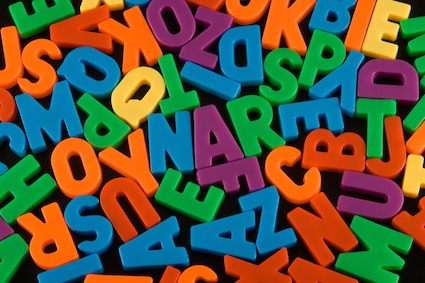
This requires a bit of time to prepare the scrabble letters but they can be used with all ages and levels so it may well be a good investment of your time.
Preparation
Prepare a set for each group of four or five students. It's a good idea to copy the letters onto different coloured card for each set. If students are working close to each other it makes it easy to separate them at the end, and for tasks when you need more letters you can mix two sets together.
Procedure
Divide the class into teams and give each team a set of scrabble letters. Get each team to spread out their letters on the table so they're all facing up.
Activities
- Spelling tests
Give clues for words you want to test them on, and the teams race to spell out the word with their letters. For example, if you say 'the day before Wednesday', students spell out Tuesday. Or, ask 'What's this in English?' and point to something in the classroom or draw it on the board. Once students get the idea, ask one of them to lead the game and give the clues instead of you. - Verb forms
If students are learning, for example, the past simple tense, you say the infinitive and they race to spell out the past simple form with their letters, e.g. if you say 'go', students spell out went. - Crosswords
Ask each group to see how many words they can make with their set of letters, connecting the words up like a crossword. Afterwards, you could ask them to draw a crossword grid on a piece of paper that matches what they made with their letters, then write clues for each word. Groups can then swap and try to complete each other's crosswords. - How many words
Each group uses a set of letters to see how many different words they can make in two minutes. There can be two winning groups, the one with the most words and the one with the longest word.
Until you see students in action with the scrabble letters you may think there's little point in going to the trouble of making the sets of letters. However, energetic young learners who are constantly fiddling find the sets of letters fascinating. A game of scrabble letters, which is effectively a spelling test, can last for ages and students are always reluctant to stop playing. The more you use the letters, the more uses you'll find for them.